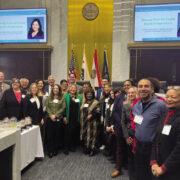MEMOIRS after memoirs, celebrities reveal unhappiness hidden beneath all the glitz and glitter. Of voids they fill up with drinking; broken marriages, failed relationships, troubled childhoods, frustrating careers, bereavement—all sources of profound loneliness. As they become addicts waiting to happen, they turn to the bottle of abuse to kill the pain. Alcohol seems to be a tool to deal with rough emotions, rage or loss.
From the outside, the place doesn’t look Messianic. It hunkers down into a split level extension of a palm tree lined house of worship. But inside, the difference starts to appear. Here, in the heart of privilege and piety, alcoholic women, who seem to have everything — rich beautiful individuals who have constant access to glamorous parties, fancy cars, expensive homes and everything that brings happiness—get together three times a week, to proclaim themselves “I am an alcoholic!” as AAers, with no apologetic grandiosity.
Alcohol is everyone’s drink for all reasons. Usually, in a booze episode, “we drink because we are happy, because we are sad. Or we drink to celebrate a success and to console ourselves in defeat.” Taken in moderation, alcohol raises our spirits. Even a glass of red wine is said to improve one’s health. It is also one of the richest food known to man, but if consumed in excess, it is a deadly contributor to premature death, fatal accidents and suicide.
For the ordinary folks, the bar is the vampire of family life. It drains the bread winner of sobriety and paycheck. It breaks up homes as family members are maltreated. They are the scums of the freeways that make innocent children become orphans, and give serious regrets that you keep in the heart’s core, the ones that gnaw in the night, haunt your days and burn your hallow.
The heart of any addiction is denial, but when the hidden addiction is found and you’re finally sent to a rehabilitation center, usually a recovery hospital, it is a great sense of relief. Part of the recovery treatment requires you to attend Alcoholics Anonymous meetings. The Alcoholics Anonymous is the most fabled and durable temperance group, a recovery model even for the scoffer and the ludicrous. It is an emblem of total abstinence, self-control, clean habits, a certain spirituality and adherence to the 12 steps.
In a regular AA meeting, it is hard to explain the mixture, pride, fear, ego and self-loathing all mixed together in one’s brain and heart. A person tells the story of her drinking and what it has done her life. During the meeting, no subjects are taboo. They need to reflect on all the things that are happening and need to discuss the reality of an alcoholic’s life. Like a support group, it is valuable with its simple nearness of good friends—the level of intimacy and trust is there because they’ve become a group of personal friends.
Wonderful and determined women share their stories of courage, truth and acknowledgement. Some talk about being gratified, no longer alone but in a group, and recipient of AA support, love, devotion, dedication and persistence of fellow AA members who knew they were alcoholics and wanted desperately to get sober again. They all have a mutual problem and are fighting to get sober again.
“AA meetings kept me alive, kept me sane, kept me on track,” said Lucy (not her real name). “I love to attend the meetings. I made more friends there last year, than I made ally my life,” confessed Miriam (another pseudo name). “People I can call up anytime of the day or night, who will listen to me talk through my problem, it’s like a miracle!” Joan (not her true identity) intoned. “I felt so good I cried, crying made me feel like I was alive again!” Mildred (an adopted name) added.
As body mended, these women forged relationships with each other’s recovery—breaking all contact with acquaintances of their alcoholic days. Its motto is, “Clean and sober” because the moment you let down your guard, the monster will return. With AA they hope to live alcohol-free, one day at a time. AA gives its members the tools to solve situations that come up. But that information cannot be considered a stopping point, you need to put that information into the context of real life.
That was exactly what I have done!
***
E-mail Mylah at [email protected]




